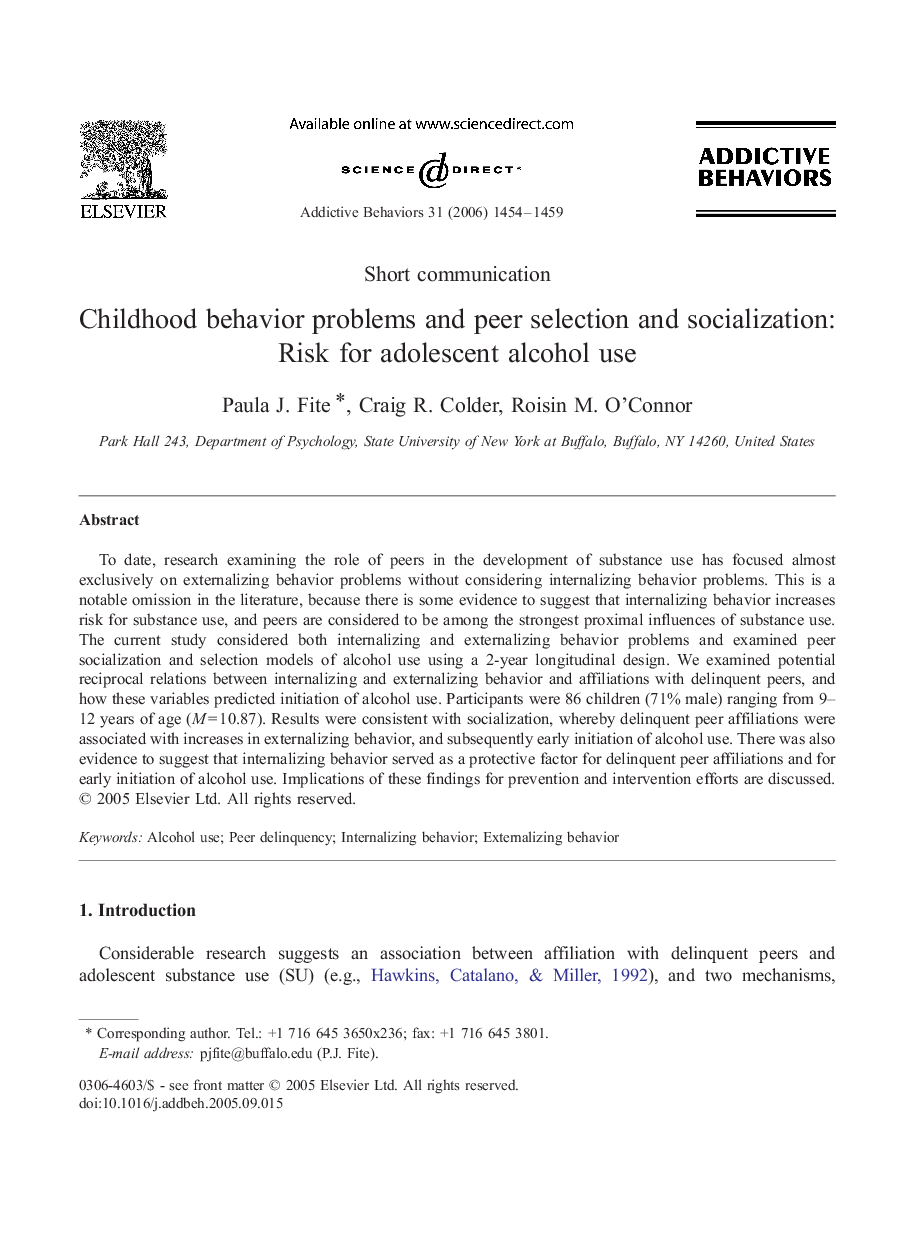| Article ID | Journal | Published Year | Pages | File Type |
|---|---|---|---|---|
| 900014 | Addictive Behaviors | 2006 | 6 Pages |
To date, research examining the role of peers in the development of substance use has focused almost exclusively on externalizing behavior problems without considering internalizing behavior problems. This is a notable omission in the literature, because there is some evidence to suggest that internalizing behavior increases risk for substance use, and peers are considered to be among the strongest proximal influences of substance use. The current study considered both internalizing and externalizing behavior problems and examined peer socialization and selection models of alcohol use using a 2-year longitudinal design. We examined potential reciprocal relations between internalizing and externalizing behavior and affiliations with delinquent peers, and how these variables predicted initiation of alcohol use. Participants were 86 children (71% male) ranging from 9–12 years of age (M = 10.87). Results were consistent with socialization, whereby delinquent peer affiliations were associated with increases in externalizing behavior, and subsequently early initiation of alcohol use. There was also evidence to suggest that internalizing behavior served as a protective factor for delinquent peer affiliations and for early initiation of alcohol use. Implications of these findings for prevention and intervention efforts are discussed.
